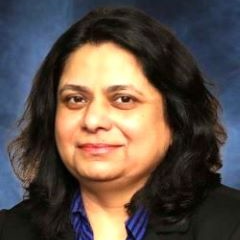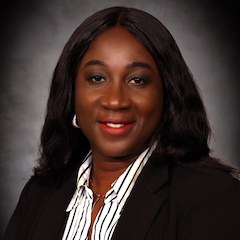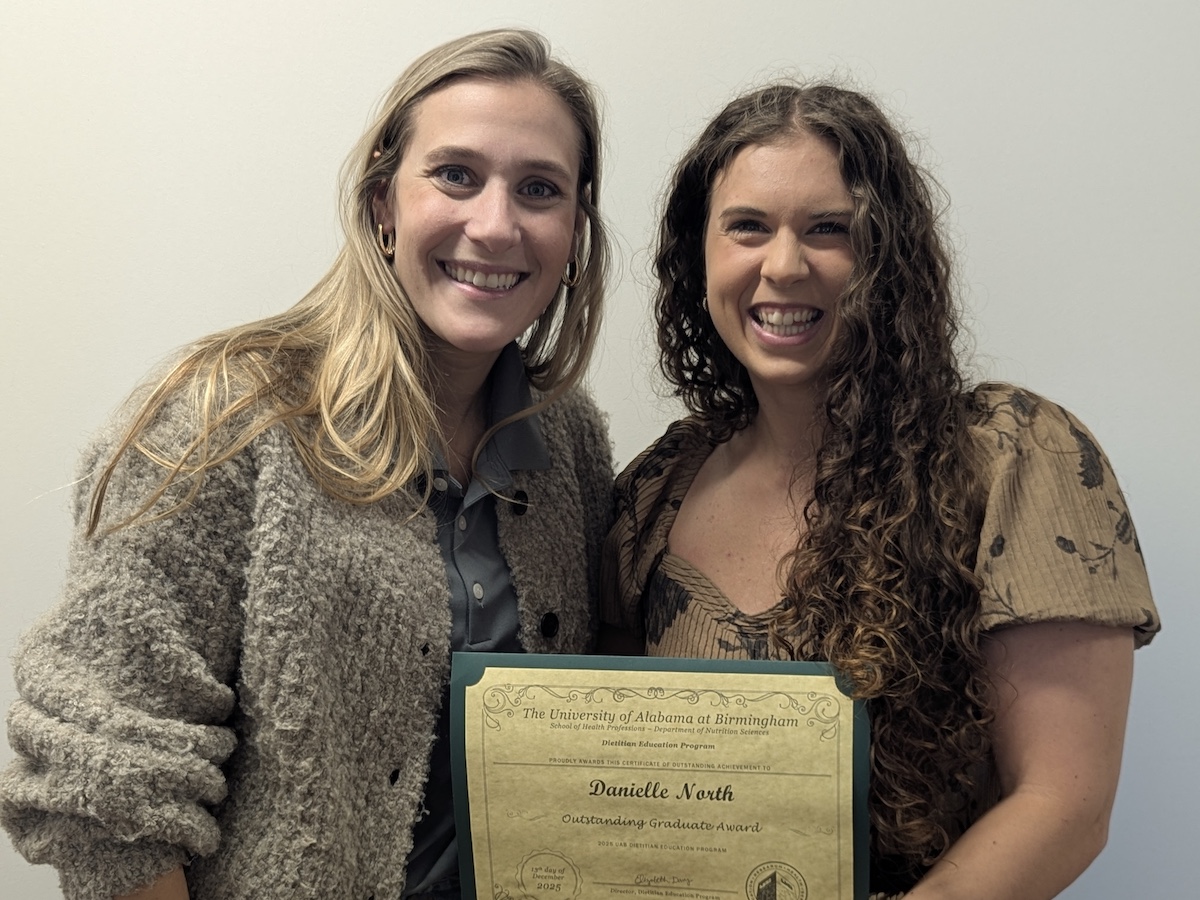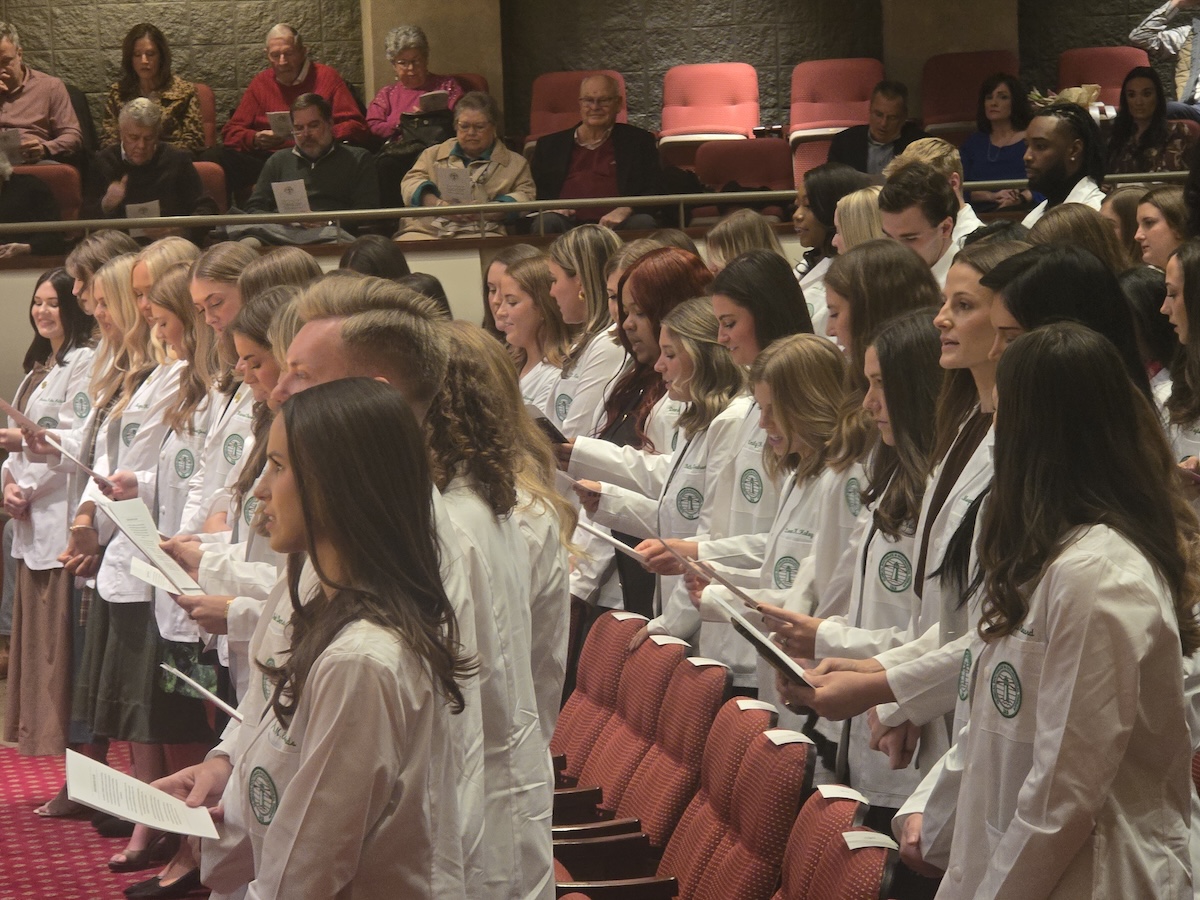The most recent Survey of Earned Doctorates (SED) shows U.S. colleges and universities awarded the most doctoral degrees in history for one academic year. However, the number of people in the U.S. with a doctoral degree is only two percent. The dichotomy of these figures shows how unique the 2023 cohort of the University of Alabama at Birmingham’s M.S. in Health Informatics (MSHI) program is, where 5 of 19 graduates – 26 percent – are pursuing doctoral degrees.
“I’m sure [MSHI program director] Sue [Feldman] would like to take the credit (big laugh)! But seriously, for me – Sue definitely gets the credit. I like to call her my academic mother,” said JaMor Hairston, who is working on his PhD in Computer Science and Biomedical Informatics at Emory University School of Medicine.
It truly is a random coincidence that these five alumni are all pursuing doctoral degrees. They came to education from different backgrounds. They came to informatics from different directions.
As Hairston says: "If you ask five informaticians how they got into our field, they would each have a different story."
Alternative to Frontline Patient Care

JaMor Hairston
JaMor Hairston came to UAB as an undergraduate with the goal of becoming a dentist. However, after four years of molecular biology classes, experiential field learning, and working with UAB IT, he understood that he “did not want to be frontline in terms of patient care.” And once he transitioned to working with data in clinical trials within the UAB Heersink School of Medicine (HSOM), he recognized that informatics was a career possibility – and that it was perfect for him.

Nivedita Patkar
Nivedita Patkar is working on her PhD in Administration-Health Services at UAB. She was already a practicing internist with a law degree who had managed Pan-Asian clinical trials across India when she joined the UAB MSHI cohort. She had also led the establishment of a centralized EKG laboratory for trials from the Americas. Nearly 20 years of experience with national and international clinical trials gave her “insight into the promise of nations being able to share health care data, saving costs and invaluable lives.”
Shalyn Naylor
Shalyn Naylor is currently a member of the sixth cohort in the Doctor of Health Administration program at Morehouse School of Medicine. Her progression from the MSHI program to the DHA program was natural for her. She always knew she wanted to work in the health care sector, and she knew which side of care she preferred: “I was passionate about helping others, but I did not wish to be on the front lines – I sought ways to assist others from behind the scenes.”

Kayla Warren
Kayla Warren was the only fast-track student in the MSHI 2023 cohort. While in UAB’s B.S. in Health Care Management program, she joined the McNair Scholars Program, which works directly with students who show potential to earn a doctoral degree. Even as an undergrad, she knew she wanted a doctoral degree in Administration-Health Services from UAB and she knew the MSHI program could help take her there: “Choosing the program was easy because it combines two things I am passionate about: the advancement of health care and the use of technology to enable that advancement.”

Eugenia Boakye Yiadom
Eugenia Boakye Yiadom is also working on her PhD in Administration-Health Services at UAB. She has worked as a data analyst and a business intelligence specialist at UAB and earned her bachelor’s degree from the University of Ghana. She hopes to focus on leveraging advanced analytics techniques to improve healthcare data systems and their implementation across diverse clinical settings.
The Program
Simply put, Health Informatics is a fast-developing field that brings people, technology, and data together in an effort to better improve health care outcomes.
The UAB MSHI program – the only one of its kind in Alabama – is at the forefront of teaching students a variety of ways to optimize technology to turn data into actionable information. It is a two-year program with classes offered 100 percent online, plus two residential visits each year where the students spend nearly a week together on campus.
Warren says that after spending this time with her classmates in person each year, that she is not surprised so many are pursuing doctoral degrees.
“The collaboration and support among the 2023 cohort has been inspiring, fostering a community of like-minded individuals who are passionate about addressing complex healthcare challenges,” said Warren. “The atmosphere of innovation and ambition motivated me to keep pursuing further academic challenges to deepen my knowledge and make a more significant impact.”
She goes on to describe the program as a “dynamic environment where students are encouraged to think critically about the role of technology in health care.”
And each student in the cohort pointed directly to the program faculty as playing vital roles in their development. They called their mentors’ expertise, passion and mentorship “infectious” and a driving force behind their continued pursuit of knowledge as well as their career success.
The Real World
“The MSHI program gave us invaluable knowledge and confidence for the real world and my continued connections with former classmates motivate me to strive for more,” said Naylor. “I applied the curriculum to secure my current position as an Analyst II at UAB St. Vincent’s. I want to grow within the health care community, and without the support of my peers, mentors, and the MSHI program, I would not be where I am today.”
Health Informatics professionals work with a broad range of processes and a unique set of tools. Yes – broad and unique can also describe the people who are drawn to the profession. The UAB MSHI program designed its curriculum for a diverse set of students – those entering their last two years of undergraduate to those straight out of undergraduate programs, as well as the experienced, busy, working professional.
All of the faculty and staff efforts are to prepare their students to come together to implement, maintain, and evaluate health informatics systems and applications in real time in the real world.
“The learning environment fostered in the MSHI program has given me opportunities to think deeply about public health issues and how informatics science can be utilized to solve common health concerns in our communities,” said Patkar. “My co-students have been a pleasure to learn along with. My time during the MSHI program is a period I look back upon fondly.”
Invaluable to Health Care
“When I decided to go for my PhD, I knew I had to have a reason,” said Hairston. “It’s not an easy feat – you don’t do this for fun! I needed a purpose to cling to in those inevitable moments where you ask yourself, ‘Why am I here?’ and ‘Can I get this done?’”
Just as Hairston touched upon earlier, the “why” was unique for each of the cohort members. For Yiadom, it was the lure of a rapidly evolving field, and I feel this drives many MSHI students to pursue doctoral education.
“Many of us, I think, discover during the master’s program that there are still significant questions to be answered and systems to be developed in this field,” she said. “Health care generates enormous amounts of data, yet we're still developing the frameworks, ethics, and methodologies to harness this information effectively.”
In order to meet the demands of their students and the field, the UAB MSHI program offers four academic track options for students to tailor their focus in year two:
- Data Analytics: a data science focus with health data, analytic methods and data mining.
- User Experience (UX): a human factors approach to user-centered design and how usersinteract with applications.
- Artificial Intelligence in Medicine (AI): clinical focused AI in collaboration with Heersink School of Medicine (HSOM)
- Research: careers in research in collaboration with HSOM’sDepartment of Biomedical Informatics and Data Science
As you would expect, the 2023 cohort was a mixture of data analytics with a focus on health care leadership, and research with a path toward scientific and academic discovery.
The Future is Their Future
Hairston, whose purpose is “to make a difference in health care by continuing to conduct research” has already done extensive work in maternal mortality and opiate misuse. Patkar is also focused on the opioid epidemic. Both are following the path of their mentor and MSHI Program Director Sue Feldman, whose research and leadership helped create ALAHOPE, a curriculum promoting best practices of safe opioid prescribing and dispensing available for all health care professions schools in Alabama.
“I want to utilize health informatics science to identify patients with substance abuse disorders having lower cognitive dysfunctions who will benefit from tailored behavioral intervention strategies,” said Patkar. “The goal is to improve their adherence to medications and behavioral changes and thus mitigate substance use and better manage this public health crisis.”
Warren calls her academic experience incredibly rewarding and continues to enjoy her growth as a leader and her “exploration of the intersection of health care delivery and the technological advancements that can enhance patient care.”
And as unique as each person is and each “why” is – the sentiment is similar from top to bottom in this close group of UAB MSHI alumni. They each strive to be difference-makers in the field of health informatics at the personal level and at the industry level.
“I plan to enhance my leadership, policy-making, and administrative skills in the health care industry,” said Naylor. “The ultimate goal after completing the doctoral degree is to concentrate on shaping health care policy within nonprofit organizations to improve health care systems.”
“The field of health informatics represents a unique opportunity to make health care more data-informed, efficient, and patient-centered,” said Yiadom. “As health care continues to generate unprecedented volumes of data, the people with the skills to transform this data into actionable insights will play a crucial role in shaping the future of medicine and health care delivery.”
“This is an amazing time for someone to get in the HI field to grasp and learn as much as possible because I truly think that informaticians will be irreplaceable to our society,” said Hairston. “As Artificial Intelligence continues to increase in health care, as technology continues to surpass all our understandings, practitioners under the biomedical informatics umbrella are going to be invaluable to health care sooner rather than later.”

